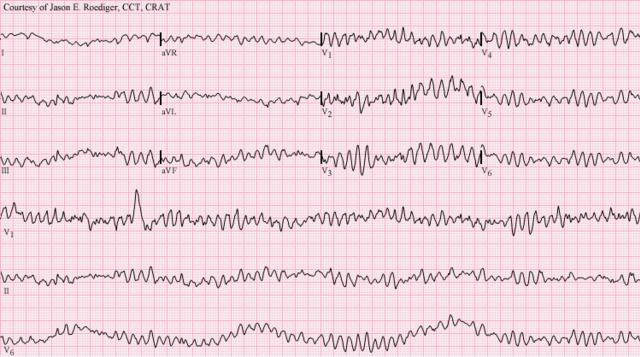The heart’s rhythm is usually steady, reliable, and consistent — but what happens when that rhythm is disrupted? Arrhythmias, or irregular heartbeats, are conditions where the heart beats too fast, too slow, or with an erratic pattern. While some arrhythmias may be harmless, others can be life-threatening and require immediate attention.
At Cardiology Center Zacharias Kounnis, we specialize in diagnosing and treating all types of arrhythmias, helping patients regain control of their heart health and restore normal rhythm.
❤️ What Is an Arrhythmia?
An arrhythmia is a problem with the electrical impulses that coordinate your heartbeats. These disruptions may cause the heart to:
- Beat too quickly – known as tachycardia
- Beat too slowly – known as bradycardia
- Beat irregularly or chaotically, such as in atrial fibrillation or ventricular fibrillation
The result is poor blood flow to the body and vital organs, which can lead to fatigue, dizziness, or more severe consequences like stroke or cardiac arrest.
🔍 Types of Arrhythmias
There are several types of arrhythmias, each with unique causes and treatments:
- Atrial Fibrillation (AFib): A fast, irregular heartbeat that can lead to blood clots and stroke.
- Supraventricular Tachycardia (SVT): Rapid heartbeat originating above the ventricles.
- Ventricular Tachycardia: Fast heartbeat from the ventricles; can be life-threatening.
- Bradycardia: Slow heartbeat, often causing fatigue or fainting.
- Premature Beats: “Extra” or skipped beats that may feel like a flutter or pause.
- Ventricular Fibrillation: Disorganized electrical activity in the ventricles — a medical emergency.
⚠️ What Causes Arrhythmias?
Arrhythmias can be triggered by a range of health and lifestyle factors, including:
- Coronary artery disease or prior heart attack
- High blood pressure
- Congenital heart defects
- Diabetes
- Thyroid problems
- Smoking or excessive alcohol
- Certain medications or stimulants (like caffeine or energy drinks)
- Stress and anxiety
- Electrolyte imbalances
Some people are genetically predisposed, while others develop arrhythmias due to underlying conditions or lifestyle habits.
🩺 Symptoms to Watch For
Not all arrhythmias cause noticeable symptoms, but when they do, you might experience:
- Palpitations (feeling your heart flutter, skip, or race)
- Dizziness or lightheadedness
- Chest discomfort or pain
- Fatigue or weakness
- Shortness of breath
- Fainting (syncope)
If you feel your heartbeat behaving unusually — whether it’s too fast, too slow, or irregular — it’s important to get evaluated promptly.
🧪 How We Diagnose Arrhythmias
At Z. Kounnis Cardiology Center, we use a range of advanced diagnostics to identify the type and cause of arrhythmias:
- Electrocardiogram (ECG) – the primary tool to record the heart’s electrical activity.
- Holter Monitor – a portable device worn for 24–48 hours to track your heartbeat over time.
- Event Monitor – for longer-term monitoring if symptoms are infrequent.
- Echocardiogram – to assess heart structure and function.
- Electrophysiological Studies (EPS) – detailed mapping of electrical signals in the heart.
- Stress Tests – to monitor rhythm under physical exertion.
🛠️ Treatment Options for Irregular Heartbeats
The goal of arrhythmia treatment is to restore a normal rhythm, control the heart rate, and prevent complications such as stroke or cardiac arrest. Depending on the type and severity, treatment may include:
1. Medications
- Anti-arrhythmic drugs to regulate rhythm
- Beta-blockers or calcium channel blockers to control heart rate
- Anticoagulants to reduce stroke risk (especially in atrial fibrillation)
2. Lifestyle Changes
- Reducing caffeine and alcohol intake
- Managing stress and anxiety
- Treating underlying conditions like sleep apnea or thyroid issues
- Maintaining a heart-healthy diet and exercise routine
3. Procedures and Devices
- Catheter Ablation: A minimally invasive procedure that destroys small areas of heart tissue causing abnormal signals.
- Pacemaker: A small device implanted under the skin to regulate slow heartbeats.
- Implantable Cardioverter Defibrillator (ICD): Used for life-threatening arrhythmias to deliver shocks and restore normal rhythm.
Each treatment is customized to your condition, lifestyle, and long-term heart health goals.
🧘♂️ Living with Arrhythmias
Being diagnosed with an arrhythmia can be unsettling, but many people live full and active lives with the right treatment and monitoring. At Z. Kounnis Cardiology Center, we work closely with you to ensure that your heart stays in rhythm — and that you stay in control of your health.
